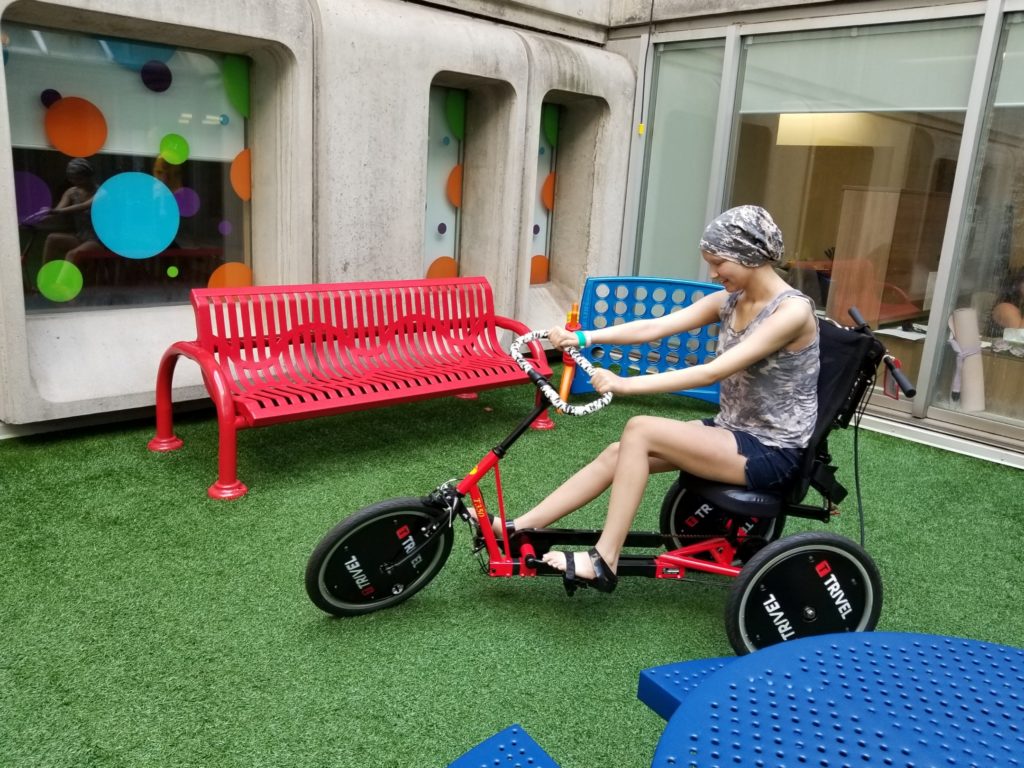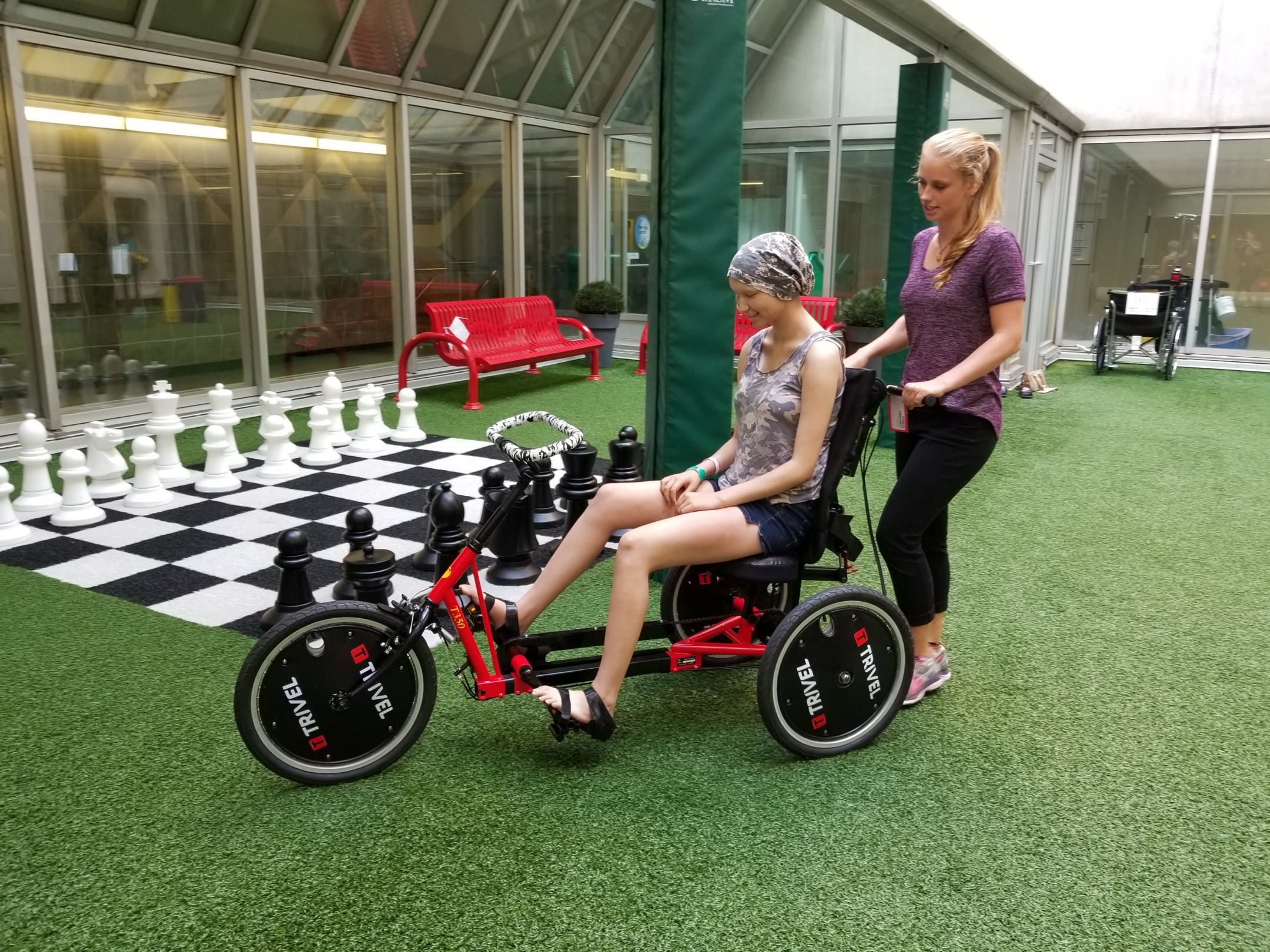
Adaptive tricycle makes exercise fun
When 17-year old Sky was diagnosed with cancer, she dreaded the long stay in hospital. She has acute myeloid leukemia, which requires six months of intensive chemotherapy. Between May and December, she spent almost no time at home.
“It was really hard,” Sky says. “I knew there wasn’t anything I could do to change it, so I decided to keep a positive mental attitude.”
Maintaining muscle during cancer treatment
During her stay, Sky worked with a physiotherapist so she could keep as much of her strength as possible. Intense cancer treatment can make physical activity very tiring, and it was often difficult for Sky to get out of bed. Physiotherapist, Mindy Broersma, would take her for regular walks around the hospital to get her moving.
“Sometimes I felt like I was just dragging her out of the room,” says Mindy, joking about Sky’s reluctance. Luckily, during her stay, Sky found a way to exercise that was much more enjoyable for her.
The Hamilton Health Sciences Volunteer Association funded the purchase of a specialized reclining tricycle that can be adapted to suit different needs. Mindy and her colleagues applied for funding because they saw a gap in the tools they were able to use with adolescents and teens.
“We would ride it all around the halls
“We had small trikes for little kids, and stationary bikes, but we needed something that would work in between,” Mindy says.
The adaptive tricycle was just what Sky needed.
Enjoying activity again
“We would ride it all around the halls, and it was fun!” she says. “When I was walking I felt like I could only go for a little while because I got so tired, but I could keep riding that bike for laps and laps.”

Mindy says physical activity is proven to be beneficial during cancer treatment, so she and her colleagues try to make it enjoyable for patients. “Research shows that exercise isn’t harmful during chemotherapy and radiation,” she says. “And studies have shown that people in exercise programs have fewer complications, and less chance of relapse.”
Sky is now home and doing well. She says the chance to use the tricycle during her treatment motivated her to exercise, and that kept her strength up.
Mindy is grateful for the Volunteer Association’s support so patients like Sky, and those in other programs can benefit from the adaptive tricycle. “Because it’s not a necessity, it’s not in our typical budget, so this support is so important.”
All profits from purchases made at Hamilton Health Sciences Volunteer Association (HHSVA) Give Shops, cafes, cafeterias, catering, and parking services are donated to enhance patient care at HHS. The HHSVA is a non-profit organization which operates retail and parking services across the Hamilton Health Sciences (HHS) family of hospitals. Throughout the year, HHSVA supports HHS by purchasing much needed patient care equipment, and providing funding for education and patient care programs. In many cases, traditional funding means do not support these purchases and programs, so the HHSVA’s support is very important.
